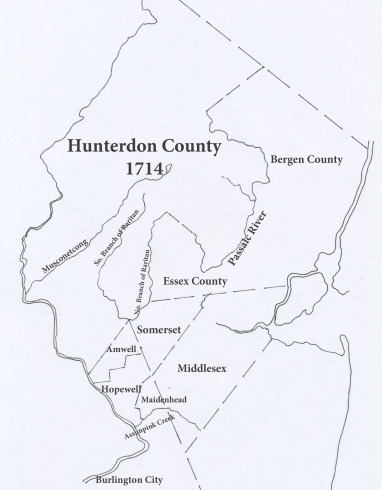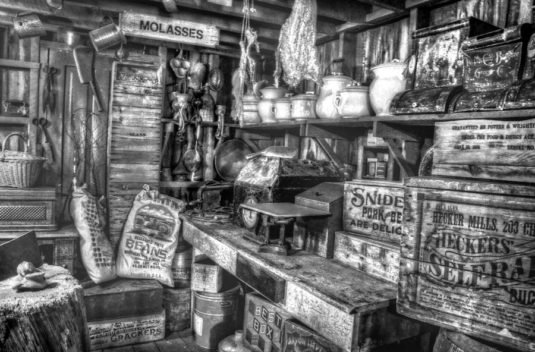Following the election of 1836, things got really interesting—so much so that I have devoted this post to only one year—1837.
politics
Sergeantsville Inn, part three
The Two John Barbers
In the early 1860s, two men named John Barber got involved on opposite sides of the question – should the country support Lincoln’s prosecution of the Civil War, or should it not?1
1863 Politics in Delaware Township
This article is a follow-up to the Democratic Club of Delaware Township, published last spring.
The previous article described the Club’s principles and resolutions, reflecting the alarm felt by Hunterdon Democrats at the war measures taken by President Lincoln. The article was published in the Hunterdon Historical Newsletter.1 But because of length restrictions, short biographies of the club’s officers had to be postponed to a future newsletter.
The Democratic Club of Delaware Twp, 1863
The most recent issue of the Hunterdon Historical Newsletter (vol. 51, no. 2) includes an article by me on the Democratic Club of Delaware Township. I thought the story an important one, so, for the benefit of those who do not subscribe to the newsletter, I am also publishing it here on my website, with a couple additional notes.
(I do hope you will consider becoming a member of the Hunterdon County Historical Society, which includes a subscription to the newsletter. It’s a great way to support the preservation of Hunterdon County history. Here’s their website: Hunterdon History.)
Ellicott’s Diary, Local News
Recently I wrote about the diary of Benjamin H. Ellicott, a Baltimore man who married into a Hunterdon family, and traveled with his family from Baltimore to Flemington in 1861.1
The Creation of Hunterdon County, part three
This is the third and final part of a speech delivered on Nov. 16, 2014 for the Hunterdon County Tercentennial. You can find the first two installments here and here.
Petitioning for a New County

With so many surveys being made in the new Indian purchases, it was clear that people would be settling in this area very rapidly. And it was also clear that this new area was going to be hard to manage from far-away Burlington City. The residents of the northern townships in Burlington County were becoming frustrated by the need to travel 20 to 35 miles by horseback to the county seat to record their deeds, probate wills and attend court.1
John Reading & the Creation of Hunterdon County (part 1)
On November 16, I gave a speech about John Reading and the Creation of Hunterdon County. There was quite a lot of information in that speech, covering the years 1664 to 1718. In fact, it was probably a bit too much.
For example, the beginning of the speech covered the conquest of New Netherland by the English in 1664, the Third Anglo-Dutch War of 1672-74, the Quintipartite Deed of 1676, and John Reading’s settlement in Gloucester County in 1684; also Edward Byllinge and the early settlement of West New Jersey. Rather than rehash material that I have already written about, you can see a list of pertinent articles at the end of this one. They cover the settlement of West New Jersey, its political history, its infamous governor Daniel Coxe, and the early career of John Reading.
For the history of Hunterdon County, it is best to start with 1694. What follows is the first part of a somewhat amended version of the speech.
Poor Horace Greeley
“Poor Horace” was Horace Greeley (1811-1872), founder, publisher and editor of the New York Tribune, a very influential newspaper during Greeley’s lifetime. He was also one of the founders of the new Republican Party in 1854. He was a vigorous opponent of slavery, and promoted many idealistic causes. In 1872 he was the candidate of both the Liberal Republican party and the Democratic Party against Republican Ulysses S. Grant, who was running for a second term. Despite the corruption of Grant’s administration, Greeley lost the electoral college in a landslide.
Samuel Green Opdycke Esq.
“Ascending!
FINDING the room on the first floor of the Court House rather too much confined for an office, and the passage too much obstructed by lockage for the free ingress and egress of clients, I have selected, for a summer office, a beautiful airy chamber in the extreme front of the building. This pleasant apartment is situated immediately over the portico of this lofty edifice, and overlooks the main street of the village; After rising three inclined planes, clients will arrive at the summit level of my office; the door opens toward the east between two windows; No toll demanded until they arrive at the summit. – Passage back, free of expense; Samuel G. Opdycke, Flemington, May 19, 1830.”1
